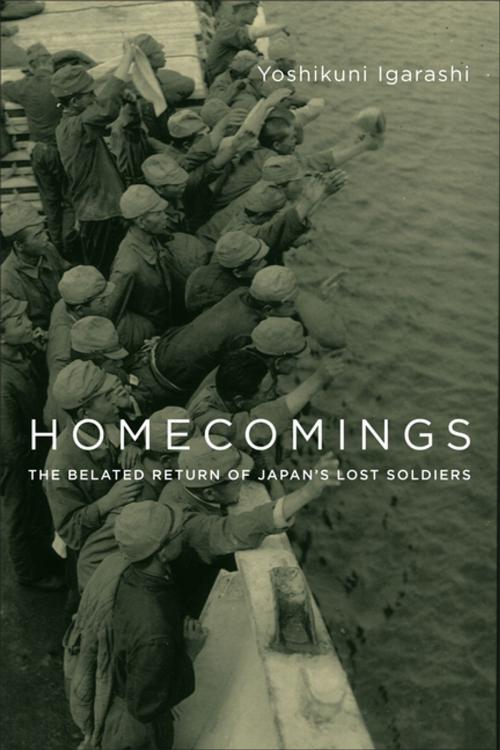Homecomings
The Belated Return of Japan's Lost Soldiers
Nonfiction, History, Asian, Japan, Military, World War II| Author: | Yoshikuni Igarashi | ISBN: | 9780231541350 |
| Publisher: | Columbia University Press | Publication: | September 6, 2016 |
| Imprint: | Columbia University Press | Language: | English |
| Author: | Yoshikuni Igarashi |
| ISBN: | 9780231541350 |
| Publisher: | Columbia University Press |
| Publication: | September 6, 2016 |
| Imprint: | Columbia University Press |
| Language: | English |
Soon after the end of World War II, a majority of the nearly 7 million Japanese civilians and serviceman who had been posted overseas returned home. Heeding the call to rebuild, these veterans helped remake Japan and enjoyed popularized accounts of their service. For those who took longer to be repatriated, such as the POWs detained in labor camps in Siberia and the fighters who spent years hiding in the jungles of islands in the South Pacific, returning home was more difficult. Their nation had moved on without them and resented the reminder of a humiliating, traumatizing defeat.
Homecomings tells the story of these late-returning Japanese soldiers and their struggle to adapt to a newly peaceful and prosperous society. Some were more successful than others, but they all charted a common cultural terrain, one profoundly shaped by media representations of the earlier returnees. Japan had come to redefine its nationhood through these popular images. Yoshikuni Igarashi explores what Japanese society accepted and rejected, complicating the definition of a postwar consensus and prolonging the experience of war for both Japanese soldiers and the nation. He throws the postwar narrative of Japan's recovery into question, exposing the deeper, subtler damage done to a country that only belatedly faced the implications of its loss.
Soon after the end of World War II, a majority of the nearly 7 million Japanese civilians and serviceman who had been posted overseas returned home. Heeding the call to rebuild, these veterans helped remake Japan and enjoyed popularized accounts of their service. For those who took longer to be repatriated, such as the POWs detained in labor camps in Siberia and the fighters who spent years hiding in the jungles of islands in the South Pacific, returning home was more difficult. Their nation had moved on without them and resented the reminder of a humiliating, traumatizing defeat.
Homecomings tells the story of these late-returning Japanese soldiers and their struggle to adapt to a newly peaceful and prosperous society. Some were more successful than others, but they all charted a common cultural terrain, one profoundly shaped by media representations of the earlier returnees. Japan had come to redefine its nationhood through these popular images. Yoshikuni Igarashi explores what Japanese society accepted and rejected, complicating the definition of a postwar consensus and prolonging the experience of war for both Japanese soldiers and the nation. He throws the postwar narrative of Japan's recovery into question, exposing the deeper, subtler damage done to a country that only belatedly faced the implications of its loss.















